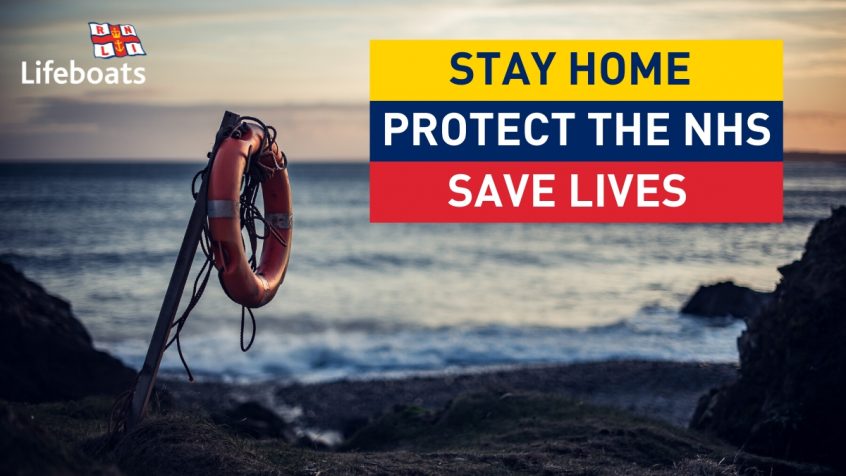COVID-19 and the RNLI

Who would have predicted at the start of the year that this spring and summertime would see the UK in lockdown as a result of COVID-19? With Easter just behind us (at the time of writing) we are all struggling with the practicalities of living under lockdown at a time when many of us would like to be making the most of school holidays and good weather.
For the volunteer crew members and supporters at Penarth RNLI station, COVID-19 has brought its own challenges. The most important thing for us is to maintain our operational services – with the aim of saving lives at sea. If our pagers activate we will respond to the station, and our lifeboats will launch. We’ve thought very carefully about the arrangements for accessing the lifeboat station, making sure we can launch but without bringing excess numbers of crew together. We have the equipment we need to manage shouts and protect our crew members and any casualties we treat. We have however had to curtail practical training sessions, though as a crew we remain in touch via teleconferencing and online training exercises. Sadly our shop will remain close and we won’t be hosting educational visits to the boathouse for the time being.
Any lifeboat call will put additional pressure on RNLI volunteers and other front line emergency services as well as potentially exposing them to COVID-19. Whilst we normally love to see people enjoying our coast, at this time we do not recommend that this exercise is on or in the sea.
We know people who live at the coast still want to exercise by the sea, but when you do this, please think of the potential impact of your actions on RNLI lifeboat volunteers and other emergency services. While you could be fully competent and never needed to be rescued, by going out on the water you could encourage others who are less proficient to take part in similar activities.
Our safety advice for those who do venture out too the coast remains the same:
- Take care near cliffs – know your route and your limitations
- Check the weather forecast and tide times
- If you fall into the water unexpectedly FLOAT TO LIVE. Fight your instinct to thrash around, lean back, extend your arms and legs, and float
- In any coastal emergency dial 999 or 112 and ask for the coastguard
One of the biggest challenges the RNLI, as a charity, faces is that we can’t arrange fundraising events, open our shops, or welcome people to lifeboat stations at the moment, which means our ability to fundraise has been severely impacted. This could be the biggest storm the RNLI has ever faced. If people feel compelled to show their support from home, we ask them to help by giving something that keeps our volunteers ready to launch, replaces worn-out kit or helps us repair a lifeboat. To support our lifesavers, go to: www.rnli.org/donate




